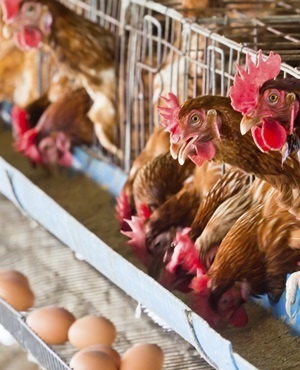
The deal to readmit US chicken pieces into South Africa has been designed to also create a new group of black chicken traders.
Without them, half of the quota squeezed out of the local industry as a concession to American poultry groups will be unusable.
Established local importers, however, believe it will inevitably have this result for US chicken farmers because the benefit of privileged access to US chicken for black businesspeople is not enough to overcome the barriers of entry into the business.
The deal to allow 65 000 tons of US chicken pieces into the local market a year is meant to appease American lobbies and assure South Africa’s continued duty-free access to the US market under the African Growth and Opportunity Act (Agoa).
Agoa is a crucial factor in South Africa’s ability to manufacture cars for the US market, which currently imports about 40 000 BMWs from South Africa every year.
The International Trade Administration Commission (Itac) published its draft guidelines on the deal last week.
It will be a rebate scheme that allows South African importers to claim back the punitive anti-dumping duties payable on imports of “bone-in” US chicken pieces.
These duties have in effect barred US chicken from the local market for more than a decade and became the major bargaining chip in a review of South Africa’s eligibility for Agoa access.
The Itac guidelines put aside 50% of the quota for the existing importers of chicken pieces – based on how much they already import.
That would largely go to about five major existing importers, according to George Southey, an executive at the Association of Meat Importers and Exporters (Amie), the local group that has been most vociferously opposed to trade barriers.
The other half must go to black-owned companies, which are almost nonexistent in the poultry-importing business. “There are no [historically disadvantaged individual] importers that we know of,” says Southey.
He says the odds of a new one materialising simply to take advantage of the US quota are relatively slim, too, because of low margins and high upfront costs.
New and unknown players could also not simply enter the sector expecting the best terms from sellers in the US, he said.
It was too soon for Amie to make any definitive statement on the guidelines, but “there is a good chance the quota will not be fully utilised”, said Southey.
This raises the question of whether the Americans will actually be happy with the concession.
The half of the quota for black companies was meant to be allocated on a “first come, first served” basis, but that might change after the period for public comment on the draft, said Foster Mhale, spokesperson for Itac.
It was also not intended that any company would be able to get allocations from both sides of the quota – as both an existing company and a black company, he said.
“Regarding the question of what will happen in case no one applies [for the black companies’ quota], it is difficult to pre-empt the process,” said Mohale. “We will only talk about that once we reach the deadline for submission of comments.”
Whatever quantity of chicken actually enters South Africa under the quota, Southey claims the net impact would probably be a displacement of other exports – not an increase in imports.
The 65 000 tons represents about 40% of all South Africa’s imports of chicken pieces, which have grown spectacularly since 2009. Most of this chicken comes from the EU.
Imports, however, represent under 10% of local consumption of chicken pieces, with the major chicken import being mechanically deboned chicken paste from Brazil, which is used in viennas and polony.




 Publications
Publications
 Partners
Partners








